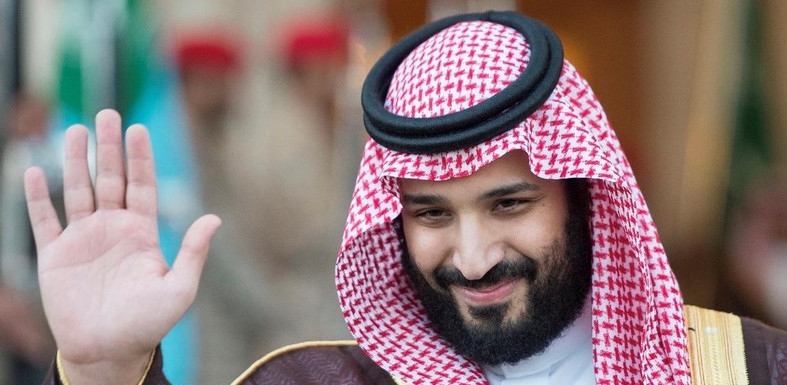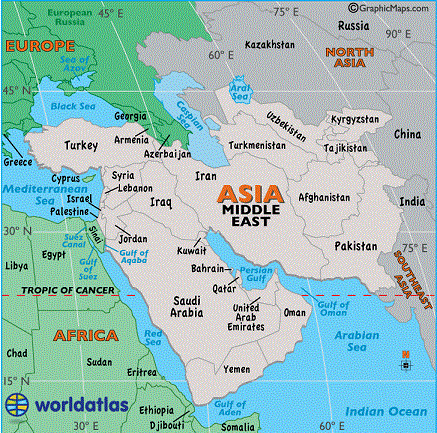Seismic shift in Middle East
November 7, 2017 | Expert Insights

The purge of top officials, ministers and some of the most powerful men in Saudi Arabia has resulted in a seismic shift in Middle East geopolitics.
Background
Mohammad bin Salman bin Abdulaziz Al Saud is the Crown Prince of Saudi Arabia. He is the First Deputy Prime Minister of Saudi Arabia and the youngest minister of defense in the world. Mohammad bin Salman is also president of the Council for Economic and Development Affairs. He was appointed Crown Prince in June 2017 following his father's decision to remove Muhammad bin Nayef from all positions, making Mohammad bin Salman heir apparent to the throne. Many have described the removal of Muhammad bin Nayef as a coup.
In November 2017, King Salman ordered the establishment of a new anti-corruption commission and named his 32-year-old son, Crown Prince Mohammed bin Salman, to lead it. Within 24 hours, authorities rocked the Middle East. Four ministers in the country along with 17 princes were sacked and detained. This includes well-known billionaire investor Prince Alwaleed bin Talal.
Jared Kushner is an American investor, real-estate developer, and newspaper publisher who is currently senior advisor to US President Donald Trump. He is also the son-in-law of the President. He has come under scrutiny after information came to light that he had four meetings with Russians during the 2016 campaign and presidential transition. He has maintained that none of those Russian contacts was improper.

Analysis
Lebanese Prime Minister Saad Hariri abruptly announced his resignation from the Saudi capital of Riyadh. His resignation sparked a political crisis in the region and brought back to the forefront and he claimed that his life was threatened. Al-Hariri accused Iran and Hezbollah of dominating Lebanon, adding: “We are living in a climate similar to the atmosphere that prevailed before the assassination of martyr Rafik Al-Hariri. I have sensed what is being plotted covertly to target my life.” Tellingly he announced his resignation from Riyadh.
This was followed by the purging of some of the most powerful and wealthy men in Saudi Arabia. Among those who have been detailed is Prince Alwaleed bin Talal, one of the richest men in the region. He has frequently criticized US President Donald Trump. The US President has warm relations with Prince Salman.
Iran’s foreign minister has said that the unannounced and unscheduled visit by Jared Kushner just a week before the purge indicates that the US administration was involved. Mohammad Javad Zarif tweeted, “Visits by Kushner & Lebanese PM led to [Saad] Hariri’s bizarre resignation while abroad,”. “Of course, Iran is accused of interference.” The Iranian foreign minister also accused Saudi Arabia of “regional bullying” and destabilizing the Middle East, while trying to pin the blame on Iran. “KSA is engaged in wars of aggression, regional bullying, destabilizing behavior & risky provocations. It blames Iran for the consequences,” he said.
Zarif also harshly criticized the US President Trump and stated that his visit to the kingdom in May had sparked the region crisis that has resulted in the impasse between Saudi Arabia bloc of nations and Qatar. He tweeted, “Visits to the belligerent #KSA have proved hazardous to regional health. Trump visit led to Bahrain repression followed by Qatar debacle.”
Talmiz Ahmad who previously served as Indian Ambassador to Saudi Arabia; Oman, and the UAE elaborated on the developments in his article for the publication, The Wire. In it he writes, “Saturday, November 4, was an extraordinary day: it witnessed three developments which, taken together, suggest a major escalation in the armed conflict in West Asia is in the offing, even as the region is already groaning under the violence of bloody wars in Syria, Yemen and Iraq, in which half a million people have been killed and several million have been displaced.” He has also shed light on post-ISIS politics that is shaping in the Middle East with Iran seeking warmer ties with Russia in helping it resist the US in Syria. He adds that this has created the ideal setting for impending war writing, “It is in this background that talk of an impending war has gained ground, with Israel taking the lead to dilute Iranian influence in its neighbourhood… With Prince Mohammed bin Salman facing no opposition or constraints and cozily ensconced with his American and Israeli allies, we are perhaps seeing the three belligerent powers in the region squaring up for a battle to make the region secure for Israel and Saudi Arabia by bombing Yemen to the stone age and defanging the Islamic Republic and Hezbollah with robust military force.”
Assessment
Our assessment is that it seems likely that Middle East could soon become the theatre for yet another war. In the past few days, Saudi Arabia also reported that the region’s military had intercepted a Yemen-borne ballistic missile over Riyadh. This indicates an escalation of unprecedented levels. Saudi Arabia may have sparked the current seismic shift, it however, does not hold all the levers of control.








Comments